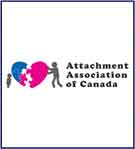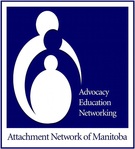ATTACHMENT DISORDER
Attachment Disorder Therapy
Trust doesn’t always come easily — especially if you’ve been hurt before. You might crave closeness, yet feel overwhelmed when someone gets too near. Or you may push people away, unsure if anyone can truly be trusted. These patterns aren’t weaknesses — they’re protective responses to emotional wounds that likely started long ago.
Attachment disorders often trace back to childhood experiences where safety, affection, or consistency were missing. If your emotional needs weren’t met growing up — through neglect, abandonment, or unpredictable caregiving — it can leave lasting marks on how you relate to others as an adult. You may see it in your relationships, at work, or in how you speak to yourself.
If you’re in Winnipeg and struggle with trust, emotional closeness, or feeling secure in relationships, therapy for attachment issues with a Winnipeg therapist at Oakville Wellness Centre can help you begin to heal — one safe connection at a time.
Take the First Step Towards Healing
At Oakville Wellness Centre in Winnipeg, we’re ready to listen and support you through life’s challenges. You don’t have to face it alone.
Signs of Attachment Disorder
Attachment wounds often run deep, and they don’t always show up the same way. Whether your reactions feel too intense or too distant, they matter — and they can be understood.
Emotional signs may include:
- Fear of rejection or abandonment
- Intense or unpredictable emotional responses
- Feeling emotionally numb or disconnected
In relationships, you might notice:
- Struggling to trust others, even those close to you
- Repeating patterns of one-sided or unhealthy relationships
- Feeling too dependent, or alternatively, afraid of closeness
Physically
- Trouble falling or staying asleep
- Feeling constantly on edge or “braced” for something bad
- Body tension and fatigue, even without physical exertion


How Therapy Can Help
Healing takes more than insight — it takes a safe, trusting relationship. That’s what we offer at Oakville Wellness Centre.
Through attachment-based therapy, you can:
- Understand how early experiences shaped your relationships
- Set healthy boundaries
- Calm your nervous system
- Build self-worth and emotional security
Whether you're seeking therapy in Winnipeg or online support through Oakville Wellness Centre, we’re here to help you heal with compassionate, personalized care.
Our Approach to Attachment Therapy
Attachment wounds don’t disappear overnight — but they can be healed with the right care. At Oakville Wellness Centre, our therapists offer a compassionate, non-judgmental space, along with evidence-based approaches to help you move forward.
We use methods such as:
- Attachment-Based Therapy: To rebuild trust and strengthen emotional bonds
- Emotionally Focused Therapy (EFT): To help create more secure, lasting connections
- Inner Child Work: To gently reconnect with and heal your younger self
- Somatic Therapy: To process the emotional pain stored in your body

Ready to take the next step?
Meet our therapists—you deserve a therapist who feels like the right fit.
Why Choose a Therapist Rooted in Winnipeg?
Living in Winnipeg comes with a unique rhythm — from long winters to tight-knit communities. But it can also bring moments of isolation and unspoken pain.
At Oakville Wellness Centre, we’re not just based in Manitoba — we’re part of its rhythm. We understand the unique challenges that come with life here, and we’re here to walk beside you through them.
You don’t have to carry it all alone. Connect with a Winnipeg therapist at Oakville Wellness Centre — we’re here to walk beside you.
Additional Resources
Ready to Talk?
No pressure. No judgment. Just someone to listen and help you move forward. With time, the weight can feel lighter. And you don’t have to do it alone. At Oakville Wellness Centre in Winnipeg, we’re ready to walk with you.


